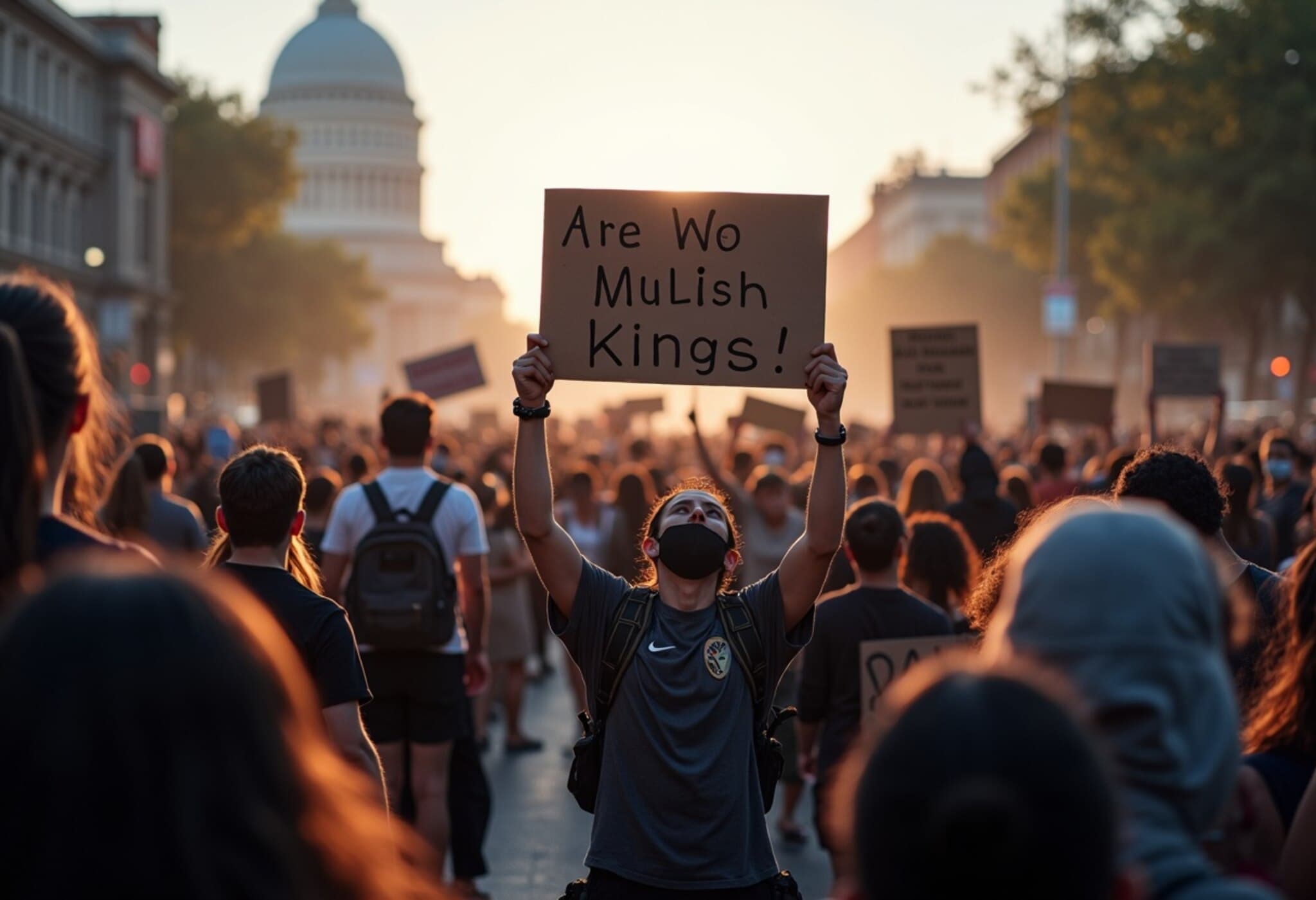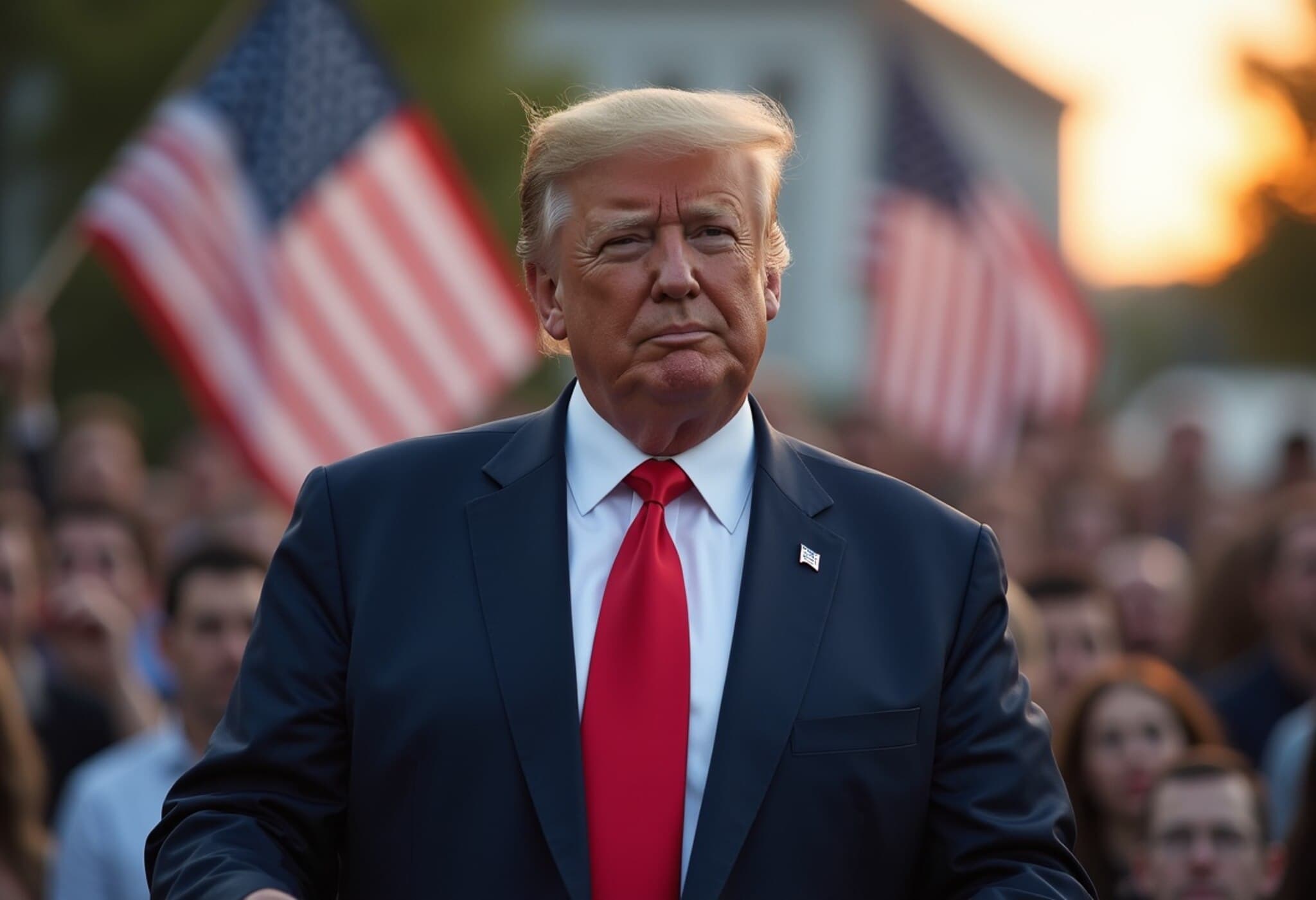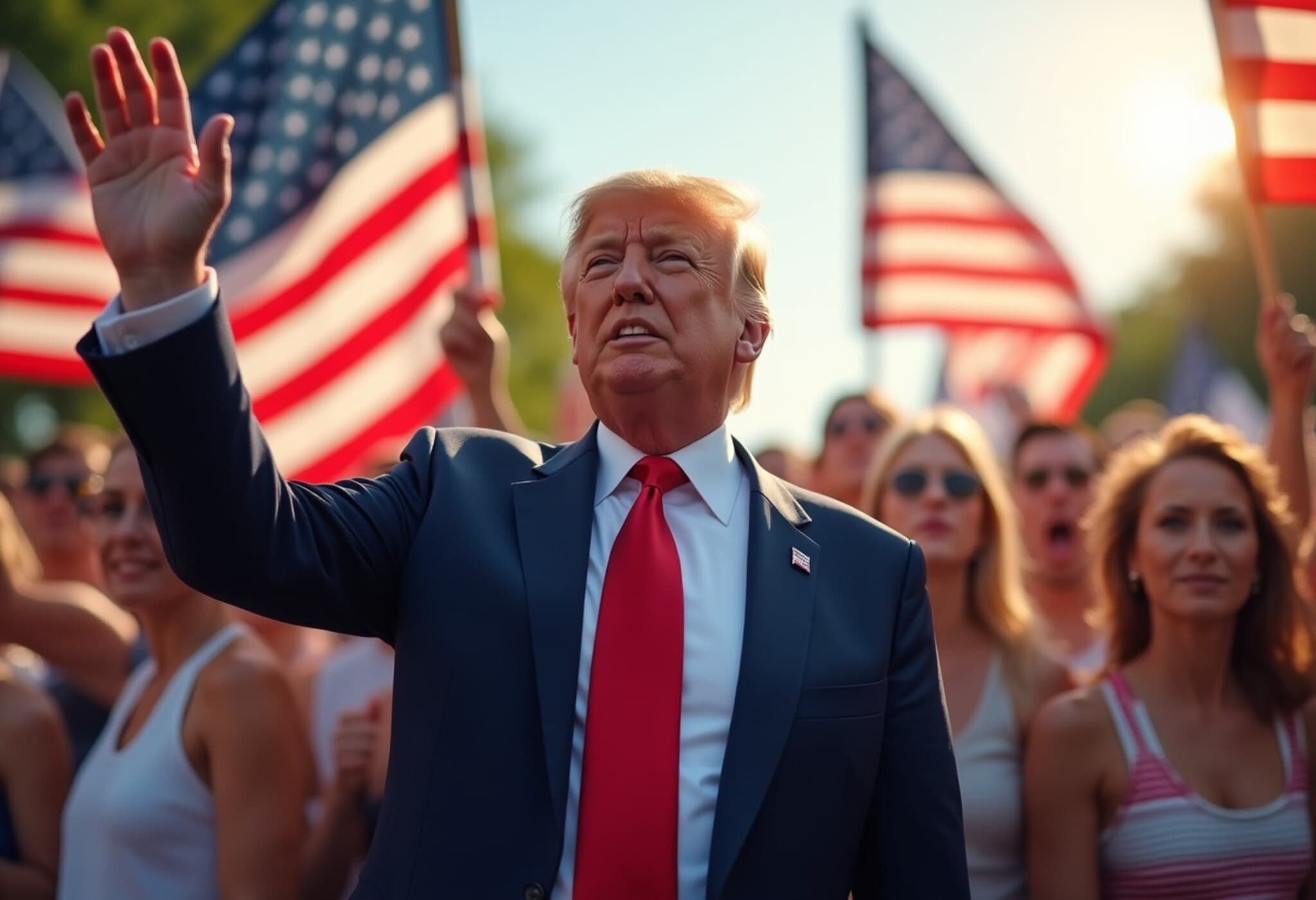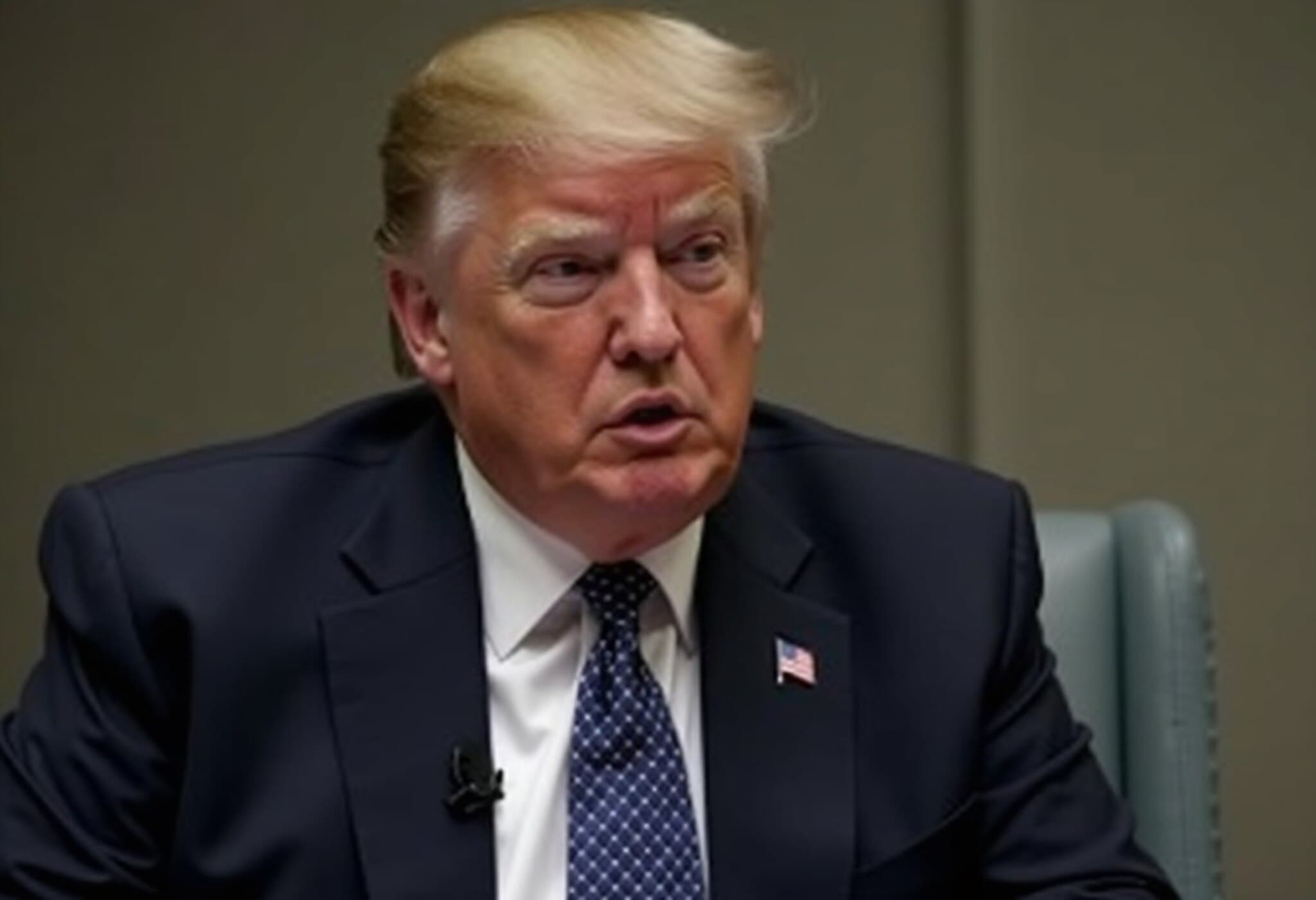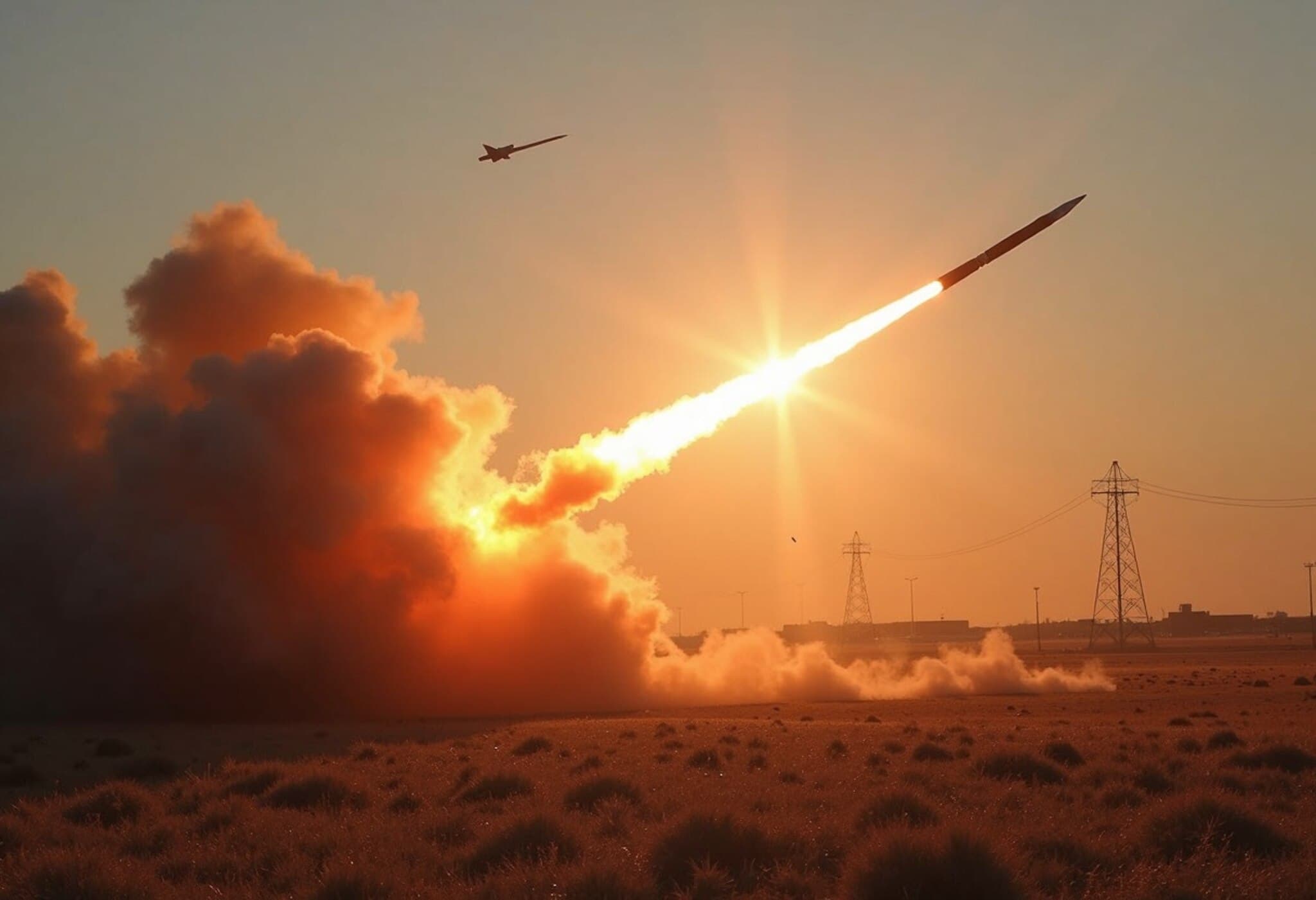Massive 'No Kings' Protests Sweep the United States
On Saturday, an estimated 5 million people flooded streets across all 50 states, expressing strong opposition to former President Donald Trump’s administration. Dubbed the 'No Kings' protests, these demonstrations challenged Trump's perceived authoritarian tendencies, highlighting his immigration policies, attacks on free speech, and efforts to reshape government institutions.
Coordinated Nationwide Movement
The protests, organized by the No Kings coalition, unfolded in more than 2,100 cities and towns, coinciding with a military parade celebrating the US Army’s 250th anniversary – which also fell on Trump’s 79th birthday. The coalition used social media platforms and encrypted messaging apps to orchestrate one of the largest anti-Trump actions during his second term.
Triggering Events and Rising Tensions
The intensity of the protests escalated after recent Immigration and Customs Enforcement (ICE) raids in Los Angeles, where 44 individuals were detained for alleged illegal entry. This sparked a week of rallies, some escalating into violence and property damage. Consequently, the Trump administration deployed 2,100 National Guard troops and 700 Marines to Los Angeles, defying local officials’ requests.
Vibrant Scenes Across Major Cities
- In New York, Chicago, Denver, Austin, and Los Angeles, massive crowds marched with chants denouncing authoritarianism, carrying American and Mexican flags with protest signs targeting Trump.
- Philadelphia saw a spirited rally featuring a woman donning a Statue of Liberty crown, creatively leading an anti-Trump sing-along by adapting the song YMCA.
- Atlanta's event overflowed beyond the state Capitol, attracting thousands, while Seattle's numbers surpassed 70,000 participants.
- Houston’s gathering had the feel of a lively block party, complete with Mexican music, food stalls, and fountains where attendees celebrated with enthusiasm.
Expanding Reach into Rural and Stronghold Areas
Importantly, protests also reached rural communities, such as multiple locations in Indiana and cities in Alabama, including Mobile, Montgomery, and Tuscaloosa, illustrating widespread dissent even in traditionally Trump-supportive regions.
Clashes and Law Enforcement Responses
Though the No Kings coalition emphasized peaceful protest, isolated conflicts occurred. In Los Angeles, law enforcement employed tear gas and crowd-control measures after events concluded. Marines guarded a federal detention center nearby, marking their first demonstration presence in the city.
- Portland police used tear gas outside an ICE facility.
- Salt Lake City faced a shooting during a march, leaving one critically injured, with multiple arrests including the suspected shooter.
- In Culpeper, Virginia, a driver was charged after accelerating into a crowd, injuring a protester.
- Following the fatal shooting of a Democratic state senator, Minnesota’s governor canceled his campaign rally; nevertheless, thousands still marched in several cities across the state.
Political Figures and Government Responses
Several political representatives and organizations lent their voices to the movement. Representative Chuy Garcia spoke in Chicago, while ACLU officials addressed crowds in New York and Philadelphia. Labor unions also actively participated nationwide.
Meanwhile, governors in North Carolina, Maryland, and Arizona voiced support for peaceful protests. In contrast, states like Virginia, Texas, Nebraska, and Missouri deployed National Guard units to maintain order during demonstrations.
Washington D.C. and Symbolic Demonstrations
Near the White House, some 500 protesters assembled at Lafayette Park—the same location where Trump had controversially used the National Guard five years earlier to disperse demonstrators before a church photo opportunity. Banners mocking Trump’s military exemption labeled him as “Commander Bone Spurs,” highlighting public dissent.
Global Echoes and Public Sentiment
The protest movement inspired solidarity events worldwide, including in Europe, Asia, Africa, and Canada, where demonstrators criticized Trump’s tariffs and comments about making Canada the 51st state.
Despite the massive turnout, surveys reveal nuanced public opinion: a recent poll found that 54% of Americans support Trump’s immigration enforcement policies, with 42% feeling safer owing to these measures.
Reflecting on the Movement’s Impact
The No Kings protests showcased a profound nationwide desire to confront perceived authoritarianism and protect democratic norms. As the coalition declared, "across political and geographic divides, Americans united to affirm that they do not accept kings in a democracy." Whether this large-scale mobilization will influence policy remains to be seen, but its scale and energy mark a significant moment in contemporary American activism.

